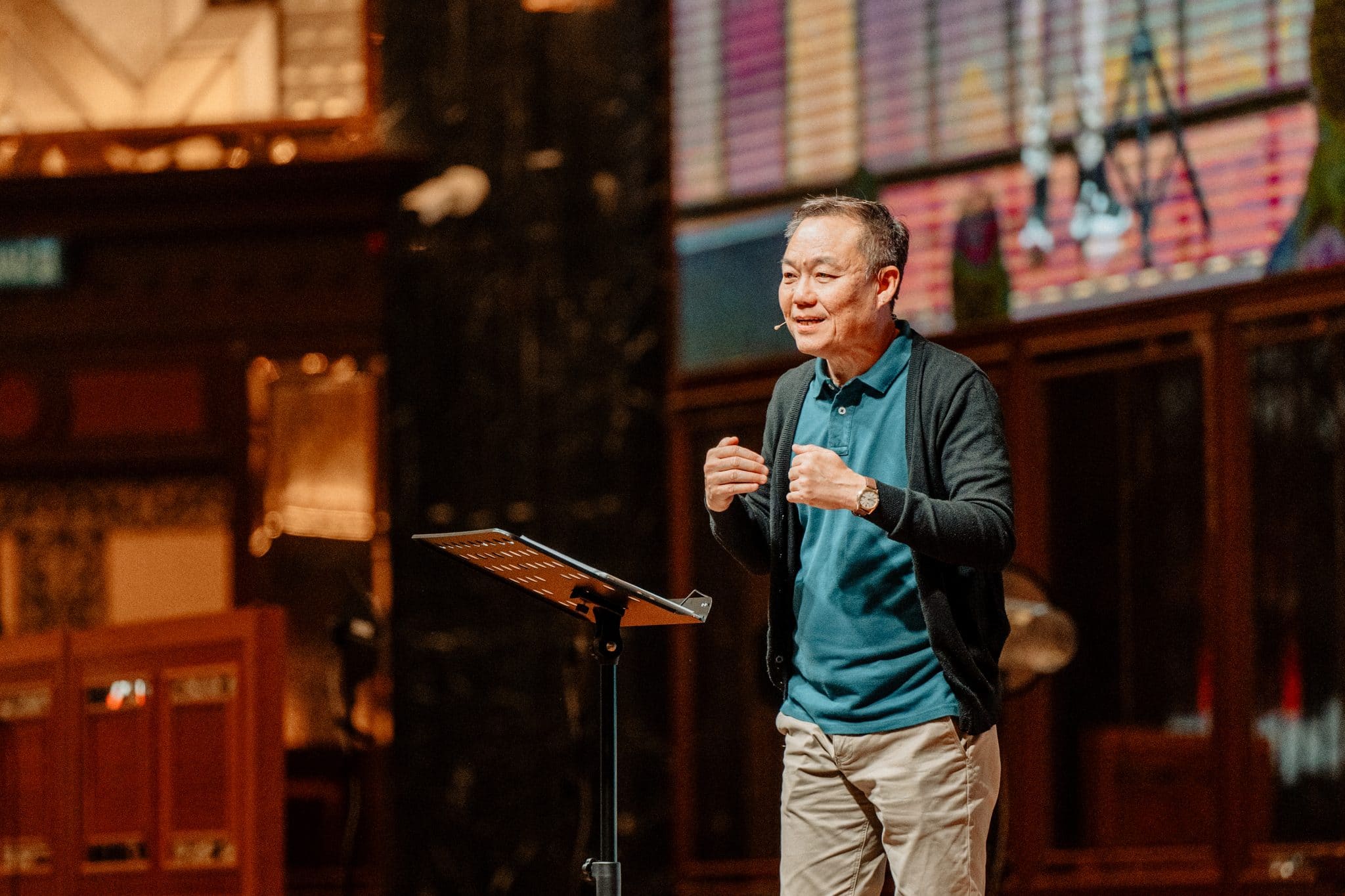5 ways churches can boost the impact of your youth ministry: FOPx research study
by Gracia Lee // October 30, 2023, 6:59 pm

The FOPx 2023 Research hopes to provide a blueprint for youth ministries to thrive. Photo from Generations Youth's Instagram page.
As all youth leaders will know, it can be downright challenging to disciple our youth in an ever-evolving and complex world.
This was why a team at FOPx, the youth wing of Festival of Praise, invested some 18 months putting together a 110-page report, based on a research study they conducted among youth leaders, that they hope will support youth ministries in their mission to raise up the next generation in God’s ways.
Named An Inter-church and Inter-denominational Look at the Needs of our Youth Ministries, Pastors and Leaders in Singapore, the report identified eight key challenges faced by our young people today and details more than 40 suggestions – ranging from easily implemented strategies to ones requiring the buy-in of the whole church – on how to tackle them.

The team at FOPx, which is helmed by seasoned youth pastors, that carried out the 1.5-year research study. All photos by FOPx Media unless otherwise stated.
At a closed-door session at Cornerstone Community Church on October 25, which was attended by more than 260 youth pastors and leaders, members of the inter-denominational FOPx team took turns to present the study’s findings (which we covered here) and highlight five ways youth ministries can keep themselves impactful.
1. Provide a safe space for leaders to practise discussing tough topics
One of the greatest challenges youth leaders face today is guiding young people through discussions on complex cultural topics, such as mental health and same-sex attraction, said Sam Choo from Christ Methodist Church.
“The goal is not to necessarily provide answers to all questions, but to have youth leaders become more confident in engaging in discourse.”
The youth are constantly inundated by voices from their friends and social media telling them how they should view these issues, and their church leaders often lack the confidence to articulate the biblical perspective.
“At the same time, these youth leaders are dealing with these complex issues themselves,” Sam noted.
In the online survey by FOPx, respondents ranked “dealing with increasing secularised and polarised worldviews” as their top challenge in discipling the youth, followed by “dealing with more individualised and sceptical mindsets”.
To better equip these youth leaders, the report suggested creating a safe space for them to wrestle with these issues, form their stance and practise how to communicate it to the youth.
“This is almost like a scenario training,” said Sam, adding that these sessions can also provide leaders with a platform to learn how to tackle difficult questions that their youth might ask.
The research report highlighted the experience of one church that held such a programme for their youth leaders, who were encouraged to do their own research before the session.
Despite the extra work needed, participants said they came out of the session with greater insights and understanding on certain cultural issues, as well as a greater confidence to converse with others about them, according to the report.
Leaders then carried out similar sessions with their youths and observed that the youths were actively engaged in the discussions and open to asking questions.

The closed-door session was attended by more than 260 youth pastors and leaders across denominations.
Some visitors who attended the sessions said they were pleasantly surprised by the willingness of the Church to talk about these topics, and also shared that the programme helped them to develop a better understanding of the Christian perspective.
“The goal is not to necessarily provide answers to all questions, but to have youth leaders become more confident in engaging in discourse, and to do so in a Christ-like manner,” read the report.
“This also creates a culture within the youth ministry that becomes more open and at ease with confronting difficult questions.”
2. Surround leaders with a supportive community
Youth leaders can often feel lonely as they have to stay behind in the youth church while their peers move up into the adult congregation and cell groups, said Claire Chua from New Life Community Church.
Many youth leaders said they felt burdened and guilty for not doing enough, and struggled to draw boundaries between work and rest.
“Between juggling church commitments and their personal life, navigating adulthood and maintaining their own spiritual growth, these leaders often end up functioning beyond their capacity. And when they struggle, they struggle alone,” she added.
When asked to rate the strength of their personal support networks, about 1 in 4 youth leaders and pastors in the survey gave a rating below five (out of 10).
Many also said they felt burdened and guilty for not doing enough, and struggled to draw boundaries between work and rest.
One way to support these youth leaders is to create a community just for leaders, such as a leaders cell group, where they can fellowship with other leaders, be honest about their struggles and receive support and prayer, said Claire.
These sessions should be held regularly so that genuine relationships can blossom and true spiritual accountability can take place. “We believe that through this, we can pour into the personal lives of these leaders as they pour their lives into the future of the church,” she said.
3. Create opportunities for different generations to come together
Many churches comprise older and younger generations that vary in the expression of their beliefs. This can lead to a generation divide that is hard to navigate for both sides, said Jeanette Low from RiverLife Church.
For example, young leaders the research team interviewed said that they would like more space to find their own expression of leadership, and felt that there is a lack of diversity in the way things are currently done.

The FOPx team presented eight key insights and five potential solutions to the common challenges of youth leaders today.
To encourage unity and understanding among generations, churches can intentionally hold events, such as anniversaries, camps and combined services, that allow the young and the old to have intentional and meaningful connections, said Jeanette.
“Instead of continuing narratives that seem to pit generation against generation, we need to be more mindful that we are on the same team.”
Building relationships between generations can also provide younger leaders the opportunity to learn from their older and more experienced counterparts.
In the online survey, close to 40% of the respondents indicated that they desired more spiritual guidance from experienced mentors, while more than 77% indicated that there is a need for effective mentorship of youth leaders through intergenerational support networks.
Pastor Jeanette noted that for the events to be effective in fostering connections, churches need to:
- Communicate the purpose of the events clearly
- Encourage everyone to make these events a top priority
- Ensure all generations are represented in the planning of events
- Create a warm atmosphere that facilitates interactions across all generations
“Instead of continuing narratives that seem to pit one generation against another generation, we need to be more mindful that we are actually on the same team, and every generation makes up a part of the body of Christ,” she added.
4. Appoint subject matter experts to help youth leaders tackle current topics
While youth leaders want to be equipped to tackle hot topics on their youths’ radar, they often lack the bandwidth or expertise to delve deeper into the topics, said Matthew Long from Cornerstone Community Church.
“We are saying, ‘Hey, we need your help to disciple the next generation.'”
Here is where the wider church community, especially those with a particular expertise or interest, can come in to support them.
For example, mental health professionals within the church can talk to the youth about mental wellness, while someone familiar with the recent Israel-Hamas conflict can give a backdrop of the issue and provide a spiritual perspective at the youth church.
These subject matter experts can also help to research, curate and create resources that can be used for a preaching series or a small group discussion.
“We’re tapping into the resources that are present within the church to help the youth ministry be resourced,” said Matthew. “We are saying, ‘Hey, we need your help to disciple the next generation.'”
5. Involve parents in the ministry
Even though teenagers may not be the biggest fans of having their parents overly involved in the youth ministry, it is critical to invite parents to come alongside youth leaders in providing them with spiritual guidance, noted the research report.
While youth leaders want to work with parents – and vice versa – in the discipling of the next generation, many are unsure of how to do so, said Edwin Fung from New Life Community Church.
As parents become more involved, they can also be role models for youths who do not have Christian families.
He threw out some simple, yet potentially impactful, suggestions: Opening their homes for small group meetings, chaperoning the youth during mission trips, sponsoring food and prizes at youth events and even helping to prepare Bible study materials.
Parents can also contribute by forming prayer networks that lift up what the youth are doing and submit the ministry into God’s hands, he added.
Stressing that these suggestions must be initiated by the youth ministries, Edwin said: “It’s about us being able to carve out and create spaces to allow and invite parents into the space that we’re working in, to be more intentional about being more inter-generational in the way we run ministries.”
He added that as parents become more involved, they can also be role models for youths who do not have Christian families and are looking for spiritual guidance and support from older mentors.
“Even though these things are simple, it takes great intentionality by churches and ministries to implement these solutions … We believe that as churches do this, not only will this strengthen the broader church community, but will also help to bridge the generational gap between the adults and the youth.”
RELATED STORIES:
We are an independent, non-profit organisation that relies on the generosity of our readers, such as yourself, to continue serving the kingdom. Every dollar donated goes directly back into our editorial coverage.
Would you consider partnering with us in our kingdom work by supporting us financially, either as a one-off donation, or a recurring pledge?
Support Salt&Light


